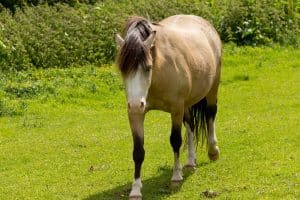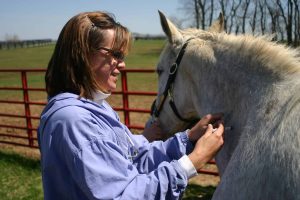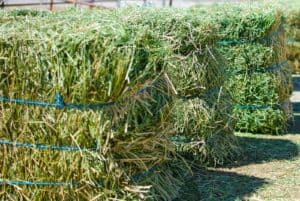
Treating EMS Horses With Allergies
Dr. Susan White describes options for treating laminitis-prone EMS horses that also suffer from allergies.

Dr. Susan White describes options for treating laminitis-prone EMS horses that also suffer from allergies.

Horses with insulin dysregulation can experience increased sugar absorption in the intestines, which could cause changes in blood glucose levels.

Learn how horses go from metabolic to laminitic and ways to manage them.

The do’s and don’ts of feeding horses with 4 common health conditions, including gastric ulcers, metabolic disorders, and more.

All horses and ponies have a different threshold for NSCs, but researchers are beginning to better understand how to feed horses with ID and EMS.

Researchers say these drugs hold great promise for managing horses with EMS when used appropriately.

How should a senior horse with equine Cushing’s disease and equine metabolic syndrome be vaccinated?

Does alfalfa cause kidney or respiratory problems or make horses hyper? Specialists shed light on these myths and more.

Is one grass hay variety more palatable than another? Should I feed my horse the first or second cutting of hay? Equine nutritionists answer these questions and more about this essential forage.

Dr. Clair Thunes, an independent equine nutritionist, answers some of our readers’ most common questions about feeding older equids. Learn about senior feeds, feeding older horses with metabolic disease, helping horses gain weight, and more.

Learn about the differences, and a few key similarities, between these two endocrine diseases.

The horse’s fed vs. fasted state, dose and type of corn syrup, season, and simultaneous endocrine testing might alter the results of this insulin dysregulation testing method.

How to recognize at-risk horses and manage them appropriately to prevent severe disease.

Researchers compared the test’s results to those of a commonly used laboratory method to determine their association.

A podiatrist gives his tips for keeping a horse with chronic laminitis and equine metabolic syndrome comfortable.

Learn how to help your horse shed his excess pounds safely.
Stay on top of the most recent Horse Health news with
© 2022 Copyright Statement dolor sit amet, consetetur sadipscing User Terms, sed diam nonumy eirmod tempor invidunt ut labore et dolore magna aliquyam erat, sed diam voluptua. At vero eos et accusam et justo duo dolores et ea rebum. Stet clita kasd gubergren, no sea takimata sanctus est Lorem ipsum dolor sit amet.
"*" indicates required fields